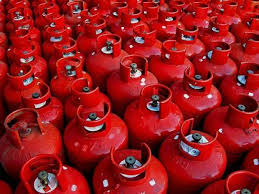KATHMANDU, Sept 7: Within three months after withdrawing the Guthi [Trust] Bill in June, the government is all set to take back the disputed National Security Council Bill which the government registered at the Parliament Secretariat six months ago.
The government took the decision due to serious objections from various stakeholders over some of the provisions of the draft of the Bill.
The Council Bill registered by Minister for Defense Ishwar Pokharel in the House of Representatives Secretariat in March has proposed a prerogative to the prime minister for mobilizing the Nepal Army directly through a cabinet decision in exceptional cases of emergency.
Opposition Nepali Congress (NC) and Rastriya Janata Party Nepal (RJPN) had opposed the bill for allowing the prime minister to mobilize the army on his own, ignoring the constitutional provision.
The constitution has envisioned that the cabinet could take decisions on mobilization and control of the Nepal Army based on the recommendations made by the seven-member Security Council. The president, who is the constitutional head of the army, shall issue the army mobilization order after the cabinet decision.
Govt plans to withdraw disputed security council bill

But the National Security Council Bill in the parliament included a provision allowing the prime minister, who is the chairperson of the Security Council, to recommend army mobilization to the cabinet without prior recommendation from the council as well as without prior approval from the president, in cases of emergency.
Opposition parties opposed the provision stating that it could help the government to mobilize Nepal Army even if the chief of the force is not ready for it. According to a minister, the government decided to withdraw the bill from parliament and revise it in line with the recently updated National Security Policy.
“It is not being withdrawn just because of the protest from the opposition but the government has now realized the need for updating the bill in line with the recently formulated National Security Policy,” the minister told Republica, requesting not to be named.
The government made some changes to the National Security Policy a few months ago including the new security challenge assessment made by the different security agencies in the country.
An official at the parliament secretariat said that Ministry of Defense has already informed the bill section in the legislature that the government has decided to withdraw the bill and that it will take it back within a few days.
Following protest from the opposition, the government had put the bill on hold in parliament without advancing it in the parliamentary procedure of deliberation and endorsement. The bill was one among six controversial bills registered in the House after K P Oli was elected PM in last February.
Critics had demanded a mandatory provision of prior consent from the National Security Council and approval from the president while mobilizing the army in any situation in the country. Opposition forces have been accusing the communist government, with a two-thirds majority in parliament, of trying to become autocratic by making laws favorable to concentrate extensive powers on the executive.
Earlier in June, the government was forced to withdraw the Guthi (Trust) Bill following strong protests both in parliament and on streets. Stakeholders accused the government of trying to assault the religious, cultural and traditional way of life of various communities through the contentious Guthi Bill.
The government also advanced the Media Council Bill in parliament last month after putting the bill on hold in the House for over five months due to protest from the media fraternity. The bill was tabled in the House only after journalists withdrew their protest as leaders of the ruling Nepal Communist Party (NCP) made a written commitment to revise the bill addressing the major concerns of the media fraternity.
The government has still put the National Human Rights Commission Bill, Public Service Commission Bill, Bill on Peace and Order and Bill on National Priority Projects on hold in parliament due to protests from various stakeholders over various controversial provisions in the bills.






































